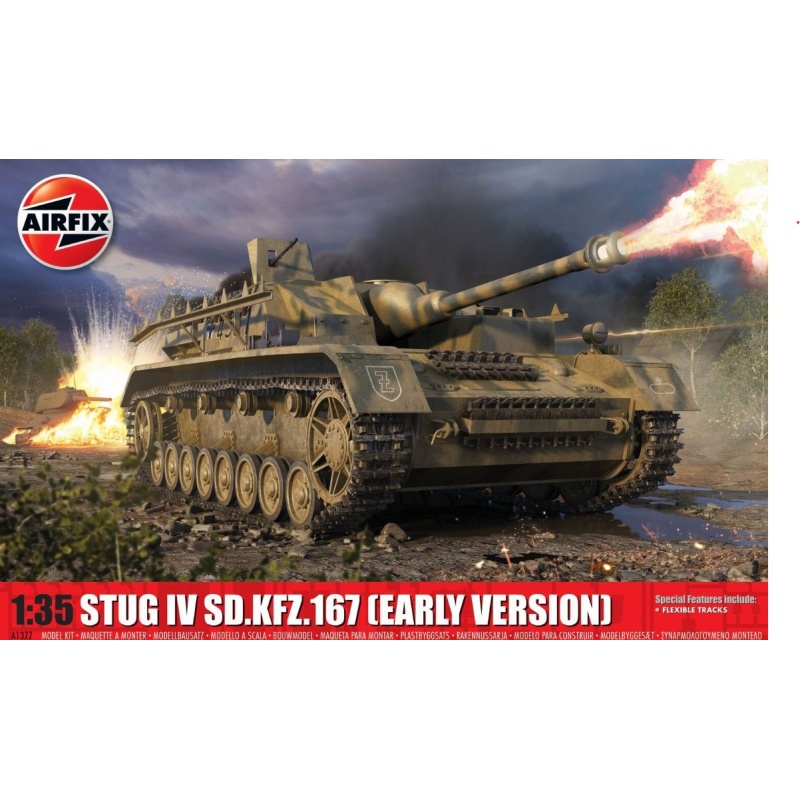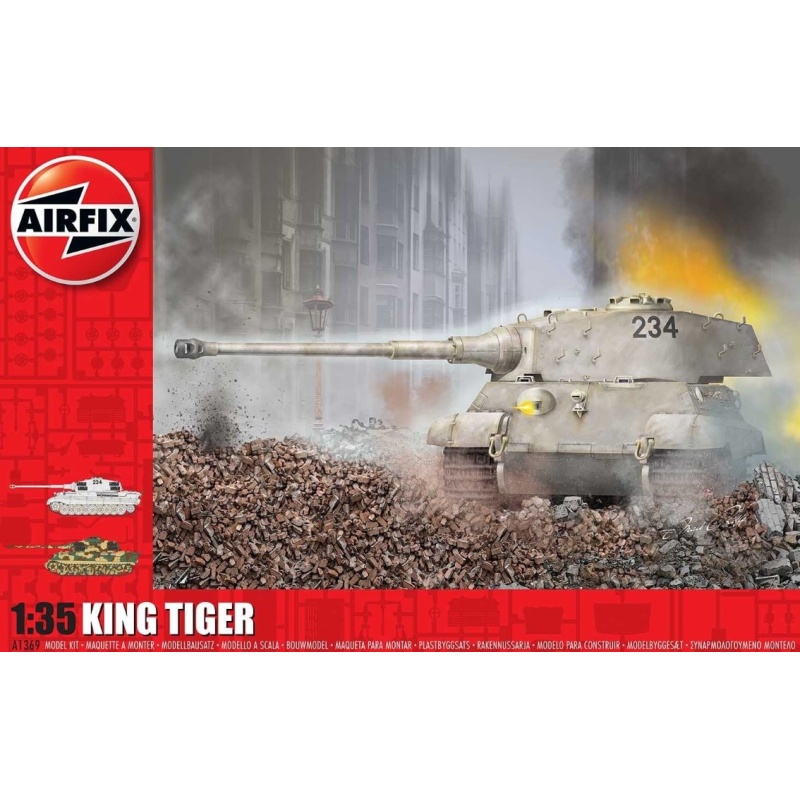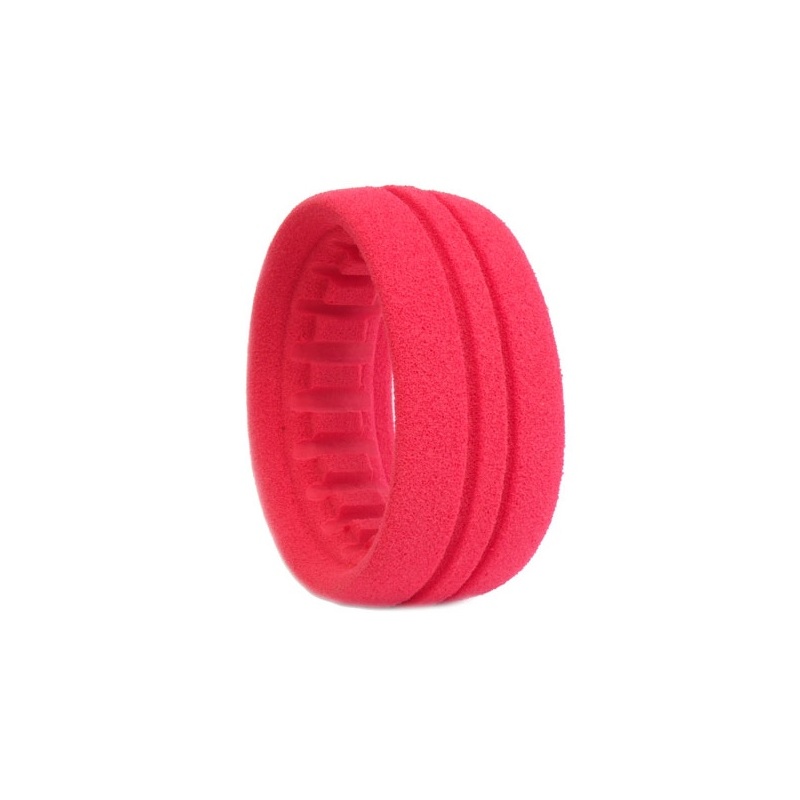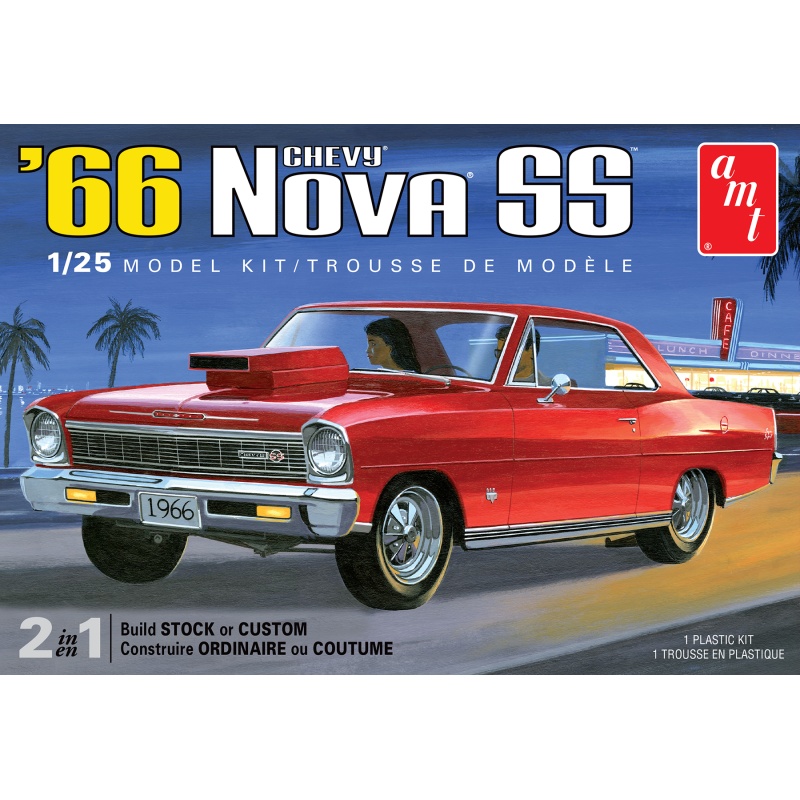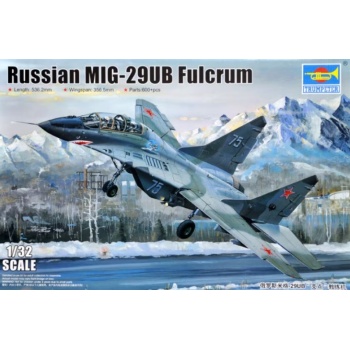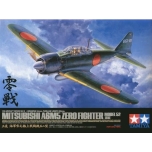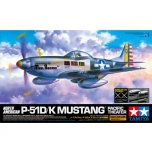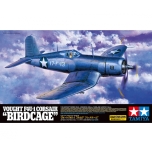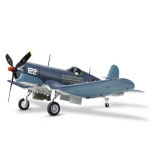Trumpeter Russian MIG-29UB Fulcrum 1:32
Detailed fuselage & wing w/accurate design
- Highly detailed Engines
- Finely detailed cockpit,gear cabin.
- Grooved rubber tires
- PE parts included
Mikojan-Guriewicz MiG-29 (NATO: Fulcrum) is a Soviet, twin-engine, 4th generation heavy front-line fighter with trapezoidal, strip wings. The mere number of over 1000 MiG 29s produced between 1977 and 1992 proves the potential capabilities of this aircraft. In fact, it must be included in the group of 3 or 4 most important, currently in active service, 4th generation fighters in the world. The MiG-29 was designed in the 1970s as a construction that could match or even exceed the combat capabilities of fighters from the then hostile western camp. And it must be admitted that it is in no way inferior to, for example, the F-16, and with many elements, such as a powerful, twin-engine drive, it surpasses the American competitor. As the MiG-29 was designed to be serviced as quickly as possible, even in the field and by mechanics with minimal experience, any repairs can actually be carried out at lightning speed. It's hard to imagine, but 5 mechanics are able to replace and test an engine in less than an hour! The extraordinary abilities of the Fulcrum do not end there. In case of problems with the drive, even when fully loaded, it can start using one engine, and then fire the other in the air. The permanent armament of the MIG 29 is the 30mm GSh-301 cannon, known for its precision. The external nodes can carry AA-10, AA-11 or AA-8 air-to-air missiles, and UB-32-57 or the unguided but larger S-8K missiles to counter ground targets. not only of the former Eastern Bloc countries, but also many other users who appreciated its great potential. Several versions of this successful fighter were created. The most important of them are, among others the first mass-produced, i.e. the MiG-29 (Fulcrum-A) with the S-29 Topaz radar and the OEPrNk-29 optoelectronic system. Another development version is the MiG-29M (Fulcrum-E) with the S-29M Żuk radar with a greater range and a better guidance and aiming system. More powerful RD-33K engines were also used instead of the RD-33. A fly-by-wire system was also used. Technical data: length: 17.37 m, wingspan: 11.4 m, height: 4.73 m, maximum speed: 2400 km / h, speed of climb: 330 m / s, maximum range: 2100 km, maximum ceiling 18000 m, armament: fixed-1 30mm GSh-301 cannon, suspended (M version) - up to 5000 kg of cargo.

